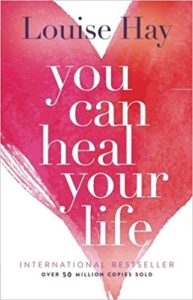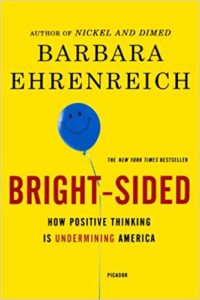All I wanted was a “free pass†– the ability to say, “No I don’t feel up to walking the dog, can you?†or the option to tell a client, “I’m going to need an extension on the deadline because, you know, cancer.â€
But, other than days when I really am so out of it I can’t hold a coherent conversation, I haven’t been able to play the “cancer card.â€
It’s not that I’ve been doing so well. Behind the “inspiring†pictures I post to Facebook, smiling in my hospital bed or out for a stroll in nature, there’s been some genuine misery: fatigue, nausea, vertigo and various aches and pains. (So far, a healthy dose of medical cannabis and judicious “elbow bumping†seem to have kept me out of the ER.)
It was during one of those bad days that I became particularly discouraged.
“Maybe I could take a few months ‘sabbatical’ from work,†I suggested to my wife, Jody. “I could watch TV all day, catch up on my shows.â€
“That’s not the cancer talking,†said my therapist, when I laid out my proposal. “That sounds more like depression. And you don’t want to go down that rabbit hole.â€
My therapist was referring to my tendency to spiral in the face of bad news; to pile on the negativity until it becomes an obsession that isn’t good for anyone. “Checking out†could cause some serious psycho-social damage, she implied.
“But this time it’s different,†I countered, not ready to give in without putting up a fight for passivity. “It’s not like in the past when my boss was on my case or I had a tiff with Jody. This time, I’m really sick. I think a free pass could do me good, give me time to heal.â€
But my therapist just shook her head. “You’ve built up all these structures that are a major part of your identity,†she said. “As a husband, a father, an employee, a dog walker, a friend, someone who exercises and eats well and hikes the Himalayas. Take those away and your self-image becomes limited to that of a ‘sick person.’ I don’t think that’s really what you want.â€
 That advice is consistent with the popular concept that maintaining a positive attitude can play a critical role in alleviating illness. The idea took off big time in the 1980s with Louise Hay’s massive best-seller “You Can Heal Your Life,†in which the author documents how through positive affirmations and visualizations she cured herself of cancer.
That advice is consistent with the popular concept that maintaining a positive attitude can play a critical role in alleviating illness. The idea took off big time in the 1980s with Louise Hay’s massive best-seller “You Can Heal Your Life,†in which the author documents how through positive affirmations and visualizations she cured herself of cancer.
Hay’s approach resonates beyond rehabilitation. “For many years there have been those who were convinced that people with certain personality types were more likely to get cancer,†the American Cancer Society website recalls. “The common thought was that neurotic people and introverts were at the highest risk of cancer.â€
That line of thinking has been since debunked – significantly through a 30-year study following 60,000 people published in 2010. But the belief in a mind-body-healing connection continues.
Is it backed up by science, though?
A study published last week in the journal Nature Communications conducted at the Technion – Israel Institute of Technology suggests the answer may be yes. The researchers found that increasing the level of dopamine in the brains of tumor-bearing mice – thus boosting their positive emotions – reduced the size of their growths.
 Whether or not the science holds up with humans, it misses the point, implies Barbara Ehrenreich in her book “Bright-Sided: How Positive Thinking is Undermining America.â€
Whether or not the science holds up with humans, it misses the point, implies Barbara Ehrenreich in her book “Bright-Sided: How Positive Thinking is Undermining America.â€
When Ehrenreich was diagnosed with cancer herself, she ran into an almost unrelenting requirement to stay positive.
“Cancer was the best thing that ever happened to me,” she quotes Lance Armstrong as saying.
“Cancer is your passport to the life you were truly meant to live,†quips Anne McNerney in the book “The Gift of Cancer.â€
“Cancer had everything to do with how good the good parts of my life were,” writes NBC News correspondent Betty Rollin.
Ehrenreich disagrees.
“Rather than providing emotional sustenance, the sugar-coating of cancer can exact a dreadful cost,†she writes. “It requires the denial of understandable feelings of anger and fear, all of which must be buried under a cosmetic layer of cheer.â€
And, if positive thinking fails and the cancer spreads or eludes treatment, “the patient can only blame herself: she is not being positive enough,†Ehrenreich adds.
It’s not just for cancer, either. “If your business fails or your job is eliminated, it must be because you didn’t try hard enough, didn’t believe firmly enough in the inevitability of your success,†Ehrenreich rails.
The members of a Facebook group for people with follicular lymphoma (my cancer) are on the same page.
“We need the opportunity to experience and express a full range of emotions without guilt and having to always be positive for others,†wrote one.
“My husband was Mr. Positivity with his cancer. I am an Eeyore by nature – gloom and doom and grump. He died. I didn’t. So go figure,†posted another.
“Show up, take the drugs,†wrote a third. “That’s what takes care of the disease. But a good attitude makes it easier to show up.â€
That last line most aptly describes why I’ve been unwilling to claim my free pass.
Cancer isn’t easy. It isn’t necessarily transformative. But continuing to show up, rain or shine, gain or pain, with a tired but true smile on my face, is without question better for me and, just as important, it’s better for my friends, family and coworkers when I present with some semblance of a recognizable self-identity.
I don’t get to play the cancer card. The truth is, I don’t want to anymore. That justmight be the most positive outcome of this unexpected journey.
I originally (didn’t) play the cancer card at The Jerusalem Post.

